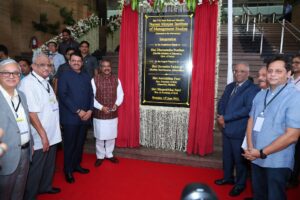
The Central Information Commission asked the RBI to come clean on “perfunctory handling” of an RTI application. The application wished to seek records to the RBI board meetings where the issue of demonetisation were deliberated. It also issued a show cause notice to its Central Public Information Officer.
The activist Venkatesh Nayar had asked for the records of the entire meeting of the RBI Central Board of Directors including the papers, presentations, documents, etc placed before it. These meetings led to the decision of demonetisation announced by Prime Minister Narendra Modi on November 8, 2016.
The applicant received no information from the RBI. They cited an exemption clause to deny these records. It was then that Nayar approached the commission, the highest body pertaining to the Right To Information Act. (RTI)
Prime Minister Narendra Modi has announced that from November 8, 2016 onward Rs 500 and Rs 1000 ceased to be legal tender.Those notes constituted 86% of all payments in India.
The noted were then replaced by new currencies- Rs 500 and Rs 2000. There were also restrictions placed on withdrawal of currency notes from the bank during demonetisation.
The applicant told Information Commissioner Suresh Chandra that the information is not exempted under Section 8 (1) (a) of the RTI Act as claimed by the CPIO.
The section exempts from disclosure informational which would prejudicially affect the sovereignty and integrity of India, the security, strategic, scientific or economic interests of the State, relation with foreign State or lead to incitement of an offence.
During the hearing, 15 months after the RTI application was filed, the RBI’s representative accepted that the application was wrongly denied.
Chandra noted that these RTI applications deserve an answer and the RBI are willing to give the minutes of the meeting.
He also added that the commission has taken a serious view on the per-functionary handling of RTI application and absence of CPIO. The petitioner, he said would have to attend the next day of hearing to explain why his penalty must not be imposed on him.
Chandra also said that the CPIO should submit his written applications and arguments before the next date of hearing.



